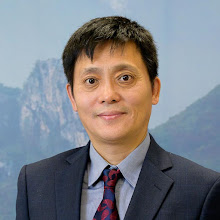KnowHow Acupuncture is not only an
acupuncture clinic, we also provide Chinese herbal medicine treatment. In
KnowHow, there are 200 high quality raw herbs that can be selected for
decoction, a traditional method of taking Chinese medicine. Two years
ago, I published an article talking
about the advantages of decoction in my blog. Selecting herbs according
to the patient’s individual condition can ensure precise and effective
treatment. Moreover, the prescription is adaptable as the condition changes and
the active ingredients of the herbs are easily absorbed by the body. However, some
patients may find taking a herbal decoction inconvenient as it tends to have a
bitter taste, be quite costly and takes a long time to decoct.
What is the second option for taking a herbal
formulation? KnowHow concentrated herbal tablets can be a
good alternative. Let’s see its manufacturing process:
As we can see from the manufacturing process detailed above, the tablets of KnowHow are made differently from other types of Chinese herbal tablets and pills. As there is a decocting and concentrating process, the properties of the tablets are similar to those of a decoction. Also, as the tablet is highly concentrated, there is no need for large doses, as can be the case with other herbal tablets. Usually, three tablets twice a day are enough for most conditions.
The
recipes for KnowHow herbal tablets come from classic herbal formulae used for
hundreds, even thousands, of years. They also come from my personal experience
treating common ailments in the UK. All of the ingredients come
from natural herbs. We use no animal or mineral substances, and no endangered
species. The labeling on the pills clearly states the Latin and Chinese names
of each herb, the expiry date of the tablets and the clinic address,
KnowHow concentrated tablets are an efficient,
convenient and most
of all,
safe herbal remedy.



